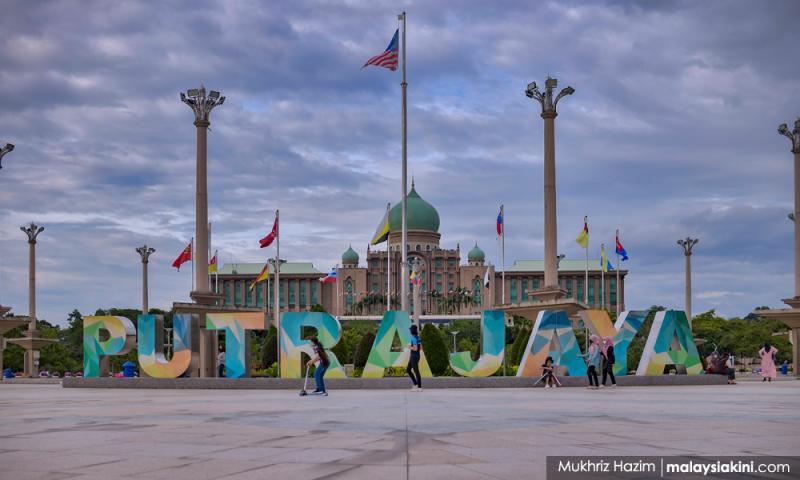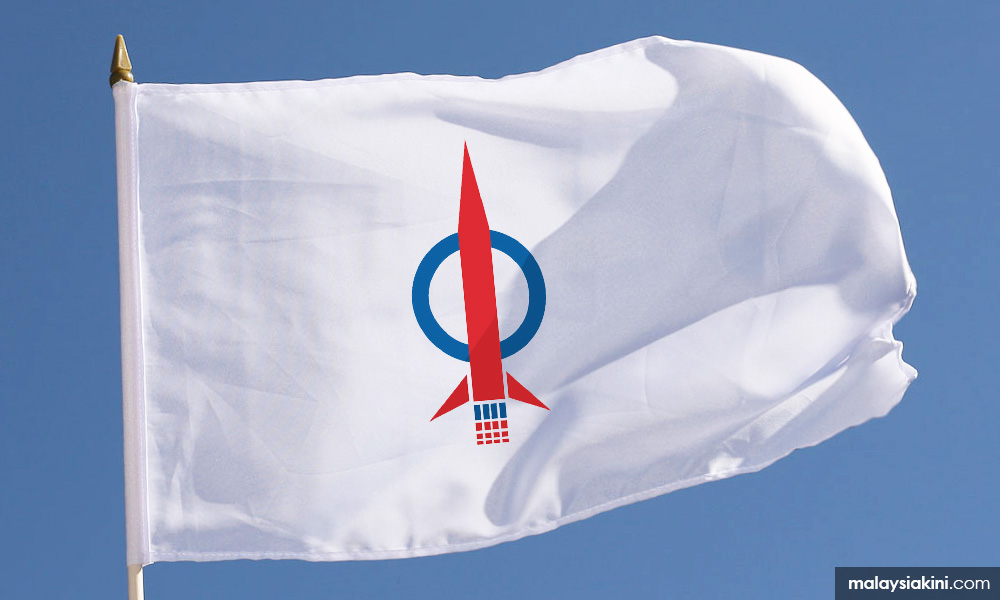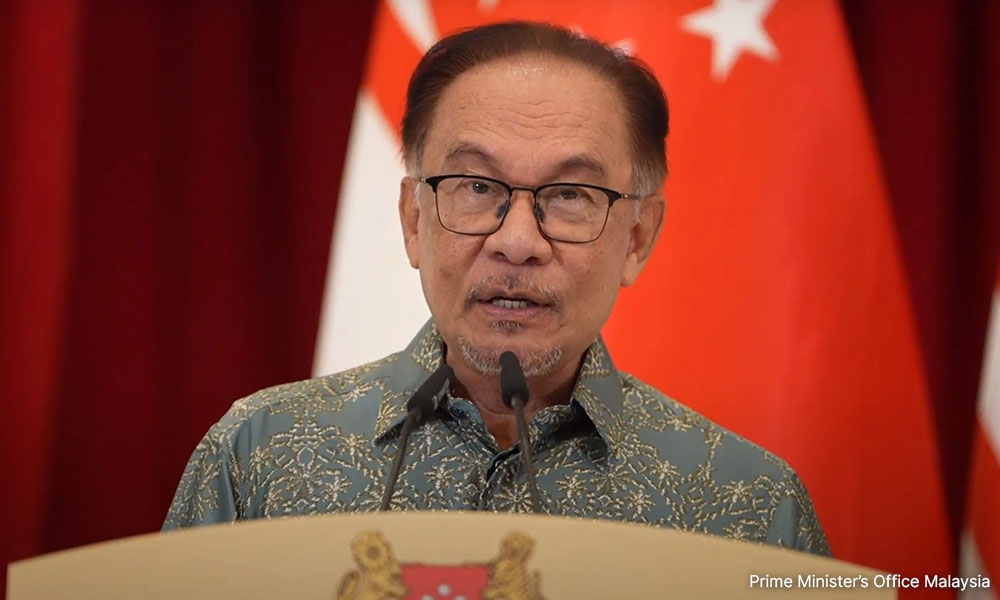
S Thayaparan
“Not everything that is faced can be changed, but nothing can be changed until it is faced.”
COMMENT | Whenever I write about “ketuananism” in this country, I have made it extremely clear that a vital component of it is complicity.
Non-Malay power structures have been complicit in the spread of Malay supremacy and the erosion of secular norms.
What destroyed the MCA was not DAP’s propaganda but the acceptance by a large voting demographic of the Chinese community that no representation in the government is better than MCA representation.
While MCA has a record of accomplishment to fall back on, the same cannot be said of MIC. The latter is a testament to the fact that the Indian community is estranged from mainstream politics because MIC has been derelict (I would argue criminally so) in its duties.
“Not everything that is faced can be changed, but nothing can be changed until it is faced.”
- American writer James Baldwin
COMMENT | Whenever I write about “ketuananism” in this country, I have made it extremely clear that a vital component of it is complicity.
Non-Malay power structures have been complicit in the spread of Malay supremacy and the erosion of secular norms.
What destroyed the MCA was not DAP’s propaganda but the acceptance by a large voting demographic of the Chinese community that no representation in the government is better than MCA representation.
While MCA has a record of accomplishment to fall back on, the same cannot be said of MIC. The latter is a testament to the fact that the Indian community is estranged from mainstream politics because MIC has been derelict (I would argue criminally so) in its duties.

Keep in mind that for decades, the non-Malays voted for BN and demonised the opposition using pragmatism as a rallying cry instead of institutional reform.
And to be fair, for decades, the non-Malays prospered while their Malay/Muslim brethren were short-changed by the Malay uber alles party they voted for.
The so-called social contract resulted in “two Malaysias”. For example, denied educational opportunities, the answer was private education for non-Malays which benefited them and cronies of the establishment.
It also created an imbalance in the healthcare ecosystem, where doctors were churned out but declined to be posted where there was a need for them and of course, the agitation of the mainstream Malay establishment, who for so long were the “gatekeepers of entry” into the middle class.
Is there merit in believing that pragmatism trumps the kleptocracy of the state? Pragmatism in knowing, but not saying, that it is in nobody's interest to change the system, but instead replacing the powerbrokers in the hopes of maintaining some kind of social and political equilibrium?
What is happening in the Malay community now, is the chickens coming to roost after decades of failed ethnocratic policies.
It is comforting to think that non-Malays have it worse when it comes to institutional racism but I would argue that the people who have it worse are the dominant polity.
Govt in collusion with religious establishment
This, of course, not only has to do with electoral gerrymandering but also the reality that the political establishment, in collusion with the religious bureaucracy, has carried out programmes to reinforce the Malay uber alles rule.
It not only includes bureaucratic malfeasance like constitutionally created “Malays” through immigration but also the ditching of family planning programmes which was an essential variable pre-1969, when it came to long-term economic and social policy making.
Now migrants threaten the economic spheres of the working and middle-class Malay community.
The non-Malay political narrative post-May 13 has been one of backpedalling, reversals, sycophancy and Orwellian doublespeak because the weight of expectation collided with the realpolitik of Malay rule.
Remember when Dr Mahathir Mohamad said that Lim Guan Eng, when he was finance minister, was not anti-Malay?
Reading what made Lim “not anti-Malay” is a litany of lapdog behaviour that the DAP demonised the MCA for.
The fact that Mahathir claims that Lim was essentially under his supervision and backed off on policy initiatives does more damage to Lim and DAP than it reassures those Malays who supposedly support the Malay uber alles (above all else), Perikatan Nasional.

Former prime minister Dr Mahathir Mohamad (right) with ex-finance minister Lim Guan Eng
The reality is that the only person who has made “anti-Malay” remarks is the old maverick. He has called them lazy, always looking for handouts, obsessed with religion, but more importantly, finding a way to blame the Chinese community for the failings of successive Malay uber alles policies.
And now PAS embraces him even though his constituents rejected him en masse.
Of course, the non-Malay polity latched on to any Malay political figure who even acknowledged their existence when it came to the institutional discrimination in this country.
Partisans railed against anyone attempting to advocate for a Malaysia for all, while flooding social media with the Bangsa Malaysia kool-aid. This cult-like devotion is what has destroyed accountability in non-Malay power structures.
Liew Chin Tong’s description of how the DAP gave everything to then-home minister Muhyiddin Yassin but it wasn’t enough, points to how non-Malay political operatives were desperate for some sort of consensus or compromise but this still made them targets of opportunity for the Malay establishment.
Mariam Mokhtar, in her piece about the Palestinian Solidarity Week issue, wrote - “If anyone is to be blamed for this ‘Palestine Solidarity Week’ debacle, then it is Anwar (Ibrahim) who should be made accountable.
“Something as divisive and complex as this ‘event’, would have required his endorsement, and not without good reason, for here’s the crux of the matter.”
The reality is that the only person who has made “anti-Malay” remarks is the old maverick. He has called them lazy, always looking for handouts, obsessed with religion, but more importantly, finding a way to blame the Chinese community for the failings of successive Malay uber alles policies.
And now PAS embraces him even though his constituents rejected him en masse.
Of course, the non-Malay polity latched on to any Malay political figure who even acknowledged their existence when it came to the institutional discrimination in this country.
Partisans railed against anyone attempting to advocate for a Malaysia for all, while flooding social media with the Bangsa Malaysia kool-aid. This cult-like devotion is what has destroyed accountability in non-Malay power structures.
Liew Chin Tong’s description of how the DAP gave everything to then-home minister Muhyiddin Yassin but it wasn’t enough, points to how non-Malay political operatives were desperate for some sort of consensus or compromise but this still made them targets of opportunity for the Malay establishment.
Mariam Mokhtar, in her piece about the Palestinian Solidarity Week issue, wrote - “If anyone is to be blamed for this ‘Palestine Solidarity Week’ debacle, then it is Anwar (Ibrahim) who should be made accountable.
“Something as divisive and complex as this ‘event’, would have required his endorsement, and not without good reason, for here’s the crux of the matter.”

Prime Minister Anwar Ibrahim
And it is convenient to blame Anwar but what I really want to know is where were all those Bangsa Malaysians when this was going on?
Where were the non-Malay political operatives who were shouting about the racial and religious polarisation in our schools?
Where were all those political operatives who were happily donning the hijab? Talking about the “ketuanan” system as though it exists in a vacuum does the non-Malays no good.
There has never really been solidarity between disparate groups fighting the ethnocratic establishment of this country.
The racism within the public system is matched by the racism within the private economic sphere. In 2012, when debating MCA president Chua Soi Lek, DAP secretary-general Lim Guan Eng claimed: “We should not bow to fate and have the right to equality. We should not kneel and beg. We should be brave enough to stand and ask for it”.
Those words are easy to say but harder to act upon. Non-Malays must hold their elected representatives accountable.
The question is, is it too late?
S THAYAPARAN is Commander (Rtd) of the Royal Malaysian Navy. Fīat jūstitia ruat cælum - “Let justice be done though the heavens fall.”
And it is convenient to blame Anwar but what I really want to know is where were all those Bangsa Malaysians when this was going on?
Where were the non-Malay political operatives who were shouting about the racial and religious polarisation in our schools?
Where were all those political operatives who were happily donning the hijab? Talking about the “ketuanan” system as though it exists in a vacuum does the non-Malays no good.
There has never really been solidarity between disparate groups fighting the ethnocratic establishment of this country.
The racism within the public system is matched by the racism within the private economic sphere. In 2012, when debating MCA president Chua Soi Lek, DAP secretary-general Lim Guan Eng claimed: “We should not bow to fate and have the right to equality. We should not kneel and beg. We should be brave enough to stand and ask for it”.
Those words are easy to say but harder to act upon. Non-Malays must hold their elected representatives accountable.
The question is, is it too late?
S THAYAPARAN is Commander (Rtd) of the Royal Malaysian Navy. Fīat jūstitia ruat cælum - “Let justice be done though the heavens fall.”

No comments:
Post a Comment